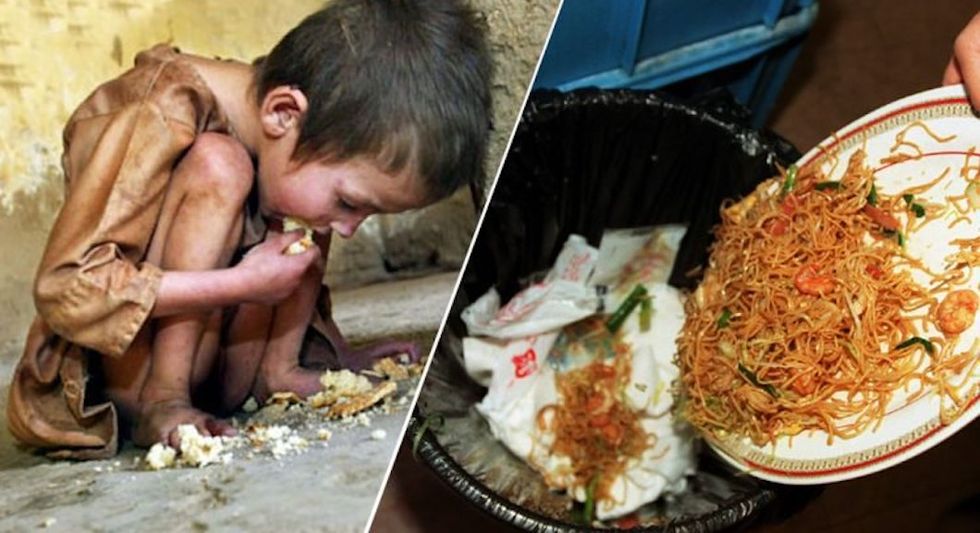Every school year builds to the last day when everyone can’t wait to return home after taking finals. My parents hope I learned something with all the money they spend on my college education. For me, the lessons I learned didn’t stop with the last final. I learned one last lesson about American culture when I cleared my dorm room for the first time.
I put most of my stuff in storage with the help of a friend. The rest had to fit in two suitcases or the trash. Like the average college kid, I’m on a tight budget. During the semester, I had accrued a stash of free food and random trinkets. It was time for their reckoning.
There was a lot of food, cleaning supplies, and knick-knacks that had to be thrown away. I went to the trash so often that I got to say bye to most of my friends on the floor. There was so much stuff that I considered valuable yesterday and lost all its value today. The only thing that changed is the amount of space I had. I was surprised at how little I actually needed.
I have been raised to eat all the food off my plate, to waste nothing. Throwing stuff away is a waste of money because I didn’t need to purchase the stuff in the first place. Furthermore, wasting is not good because someone else could use it. I shouldn’t waste my chicken nuggets because there is someone out there who is hungry and would eat it.
I had tried to keep up my non-wasting streak in the dining halls, but it would always seem silly to keep doing so when I would see the staff throw away a lot of food during closing time. Now, I was at a breaking point. All this excess. I didn’t feel bad when I bought the excess. I only felt bad when I discarded it. Why?
Whenever I hear about exceptionally rich people, I tend to get disgusted by their excess. Having five cars or three houses is a waste of limited resources. Now, I realize that having excess cleaning supplies and the food is similar to their excess but to a lesser degree. I’m disgusted with myself for becoming like them.
In a sense, the excess is American culture. The five cars are the same as the peacock’s feathers. One is judged by their excess. Having a car just sitting in a garage shows how wealthy you are to everyone else and gives reassurance of your own success. In a way, our identity is tied to our excess. Excess has become a form of self-expression. My excess is a choice I made. I can be excessive in food, clothes, etc. The choice reflects something about me.
Such a mentality is dangerous because excess can obscure the things that are most important to people. Having three houses isn’t as important as spending time with family. Furthermore, it creates a destructive greed. Enough is never enough. I don’t need to have enough cars, I need to have enough cars to show how successful I am.
That excess doesn’t provide any value back to society. In this land of abundance, the excess is an illusion. There isn’t enough to satisfy the unstainable appetites of excess. Being in an excessive culture, food no longer functions to stop hunger. It is supposed to make me feel good.
If I don’t like its taste, then I can discard it and be fine with that. It makes us forget the real scarcity others experience. It makes us forget that food is a privilege. Moreover, it is the culture that really makes the difference. If I threw away what I did today, nothing much would change. If millions within a culture discard their stuff, in the same way, my contribution to the problem is negligible as well as my responsibility.
Despite such drawbacks, the excess is the engine of our economy. If everyone lived like monks, taking just what they needed, the whole economic system would collapse. Without excess, many clothing companies, car companies, manufacturing companies, and outlet stores would go bankrupt.
To show just how prevalent excess is to the US economy, President George W. Bush said, “And one of the great goals of this nation's war [War on Terrorism] is to restore public confidence in the airline industry. It's to tell the traveling public: Get on board. Do your business around the country. Fly and enjoy America's great destination spots. Get down to Disney World in Florida.” He outright calls for excess during a time of war.
With excess so inextricably linked to US culture and economics, it has become good for us. Only from the perspective of another country will it look bad. Will these other countries follow the American way? In light of this, the American way is to not just end world hunger but to let everyone have excess. What is more probable, that everyone has excess or a new system is replaces the current one?

















